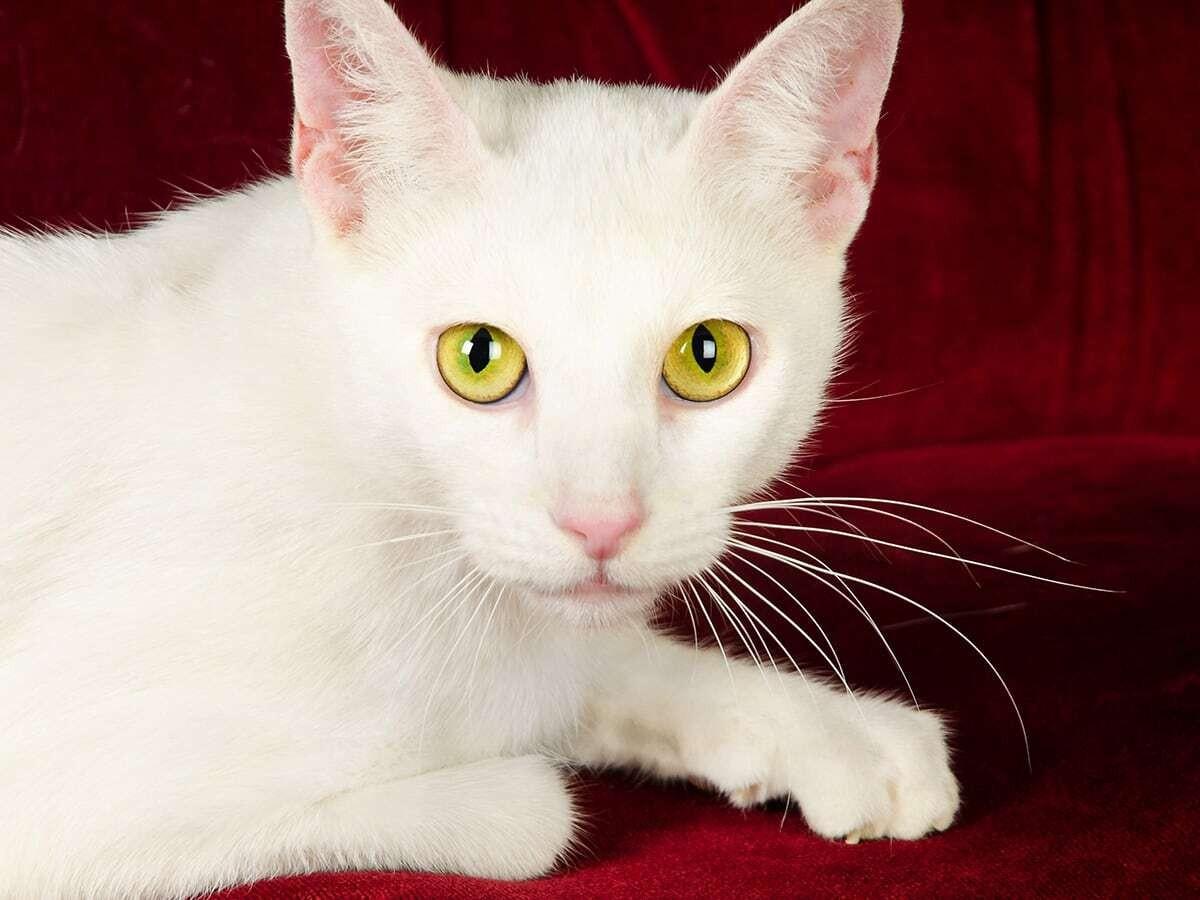
Russian White
The Russian whites are medium-sized domestic cats with muscular bodies. They have a sense of elegance to themselves and look very identical to the Russian blue.
Breed Profile
Height
8 - 10
Inches
Weight
8 - 12
Pounds
Life Span
12 – 15
Years
Health
health
Bladder Stones
What is it?:
Bladder stones are a collection of minerals, crystals, and organic material that gets accumulated in the bladder. These can be caused by some other disease or infection. These stones block the urethra and make it difficult for the cat to urinate.
Clinical signs
The clinical symptoms of this condition may include -
Urinating in unusual places
Discomfort in urinating
Blood in the urine
Licking their genitals
Increase in the frequency of urinating
Urinary tract infection
Spraying of the urine
Treatment
The Stone needs to be examined to understand what sort of a kidney stone it is. Treatment is given based on that. Treatment may include:
Flushing out the bladder of your pet.
Lithotripsy may be performed which is the destruction of stones in the bladder via shock waves.
Surgically removing the stone in severe cases.
Eligible vet bill
$1,200
*Hypothetical reimbursement examples illustrate reimbursement of an eligible vet bill at the noted reimbursement rate, assuming the annual deductible had already been satisfied and the annual coverage limit has not yet been met. Annual deductible, co-insurance, benefit and coverage limits, and exclusions may apply. Eligibility may vary. Visit https://spotpetinsurance.ca/sample-policy for full terms. For Canada enrollments only, reimbursement rate is based on the pet's age.
health
Diabetes
What is it?:
Diabetes is a condition where the body cannot properly produce or respond to the hormone insulin. This increases the level of glucose in the blood.
Clinical signs
The clinical symptoms of this condition may include -
Increase in the frequency of urination
Loss of weight
Increase in thirst
Puking
Weakness in the body
Poor quality of the fur
Muscle wasting
Treatment
The treatment of diabetes is to give insulin injections to the cat twice a day or once a day depending on the results. The cat’s diet needs to be changed and they should be given a diet rich in proteins and low in carbohydrates. In some cases, oral medication is given but it is said to be less effective, injections are preferred over medications. This can allow the insulin to work better and may also help with weight loss.
Eligible vet bill
$3,500
*Hypothetical reimbursement examples illustrate reimbursement of an eligible vet bill at the noted reimbursement rate, assuming the annual deductible had already been satisfied and the annual coverage limit has not yet been met. Annual deductible, co-insurance, benefit and coverage limits, and exclusions may apply. Eligibility may vary. Visit https://spotpetinsurance.ca/sample-policy for full terms. For Canada enrollments only, reimbursement rate is based on the pet's age.
Personality
Friendly
The Russian White is a friendly cat breed and loves to be around its family. They may be reserved towards strangers but are loving to their own.
Reserved
Even though the Russian White is friendly they do need some time to be alone. They can get reserved and timid. They are not very sociable and need time to themselves.
Intelligent
The Russian whites are very intelligent and have a great memory. They are good at remembering people
Lifetime Care
Coat
The Russian White has a delicate coat with short hair.
Colors
They are available only in a snow-white color just like their name suggests.
Hypoallergenic
No
Grooming
The Russian White is not very high maintenance. They have a snow-white coat that needs to be brushed twice a week. Their coat is short and does not shed excessively. They need to be bathed only when their coat gets dirty and their teeth need to be brushed occasionally as well.
Training
The Russian White tends towards being timid around strangers and hence they need to be taught how to socialize. They can also be lazy, this may affect their weight and hence they need to be trained to exercise in some form to be fit. They respond well to positive training but can also be stubborn at times.
Russian White: Introduction to the Breed
The Russian white has its origin in the 1970s They were bred from the Blue Russian cat breed. They are a result of an Australian breeding program that consisted of a Siberian and a Blue Russian.
Russian White Physical Characteristics:
Broad muzzle
Wedged head
Muscular body
Bright green eyes
Russian White is best suited for pet owners:
Who wants an elegant-looking cat
Who wants a friendly pet
Who wants a patient pet
Who may have children
Things to know before deciding to own a Russian White
The Russian White may be shy around strangers and may take time socializing.
They tend to be homebodies and will not leave the house if not trained to do so. They need to exercise to keep themselves from getting obese.
They are a very rare breed to find as there are a lot of breeders who have fake White Russians.
Conclusion
The Russian Whites are perfect for a laidback family as they can be lazy. If you are looking for a pet that lies next to you doing nothing then they are your pick. Overall they are healthy pets with no genetic health conditions and can live up to 15 years. They are also very patient with children. The Russian White is not just beautiful and elegant-looking cats but are lovable and affectionate creatures who can make a place in your life once you get to know them!
Happy Mood and Health to your Cat and Lots of purrs to you!


